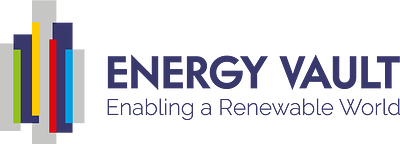Apply now
Please let Commonwealth Fusion Systems know you found this job on Work in Green. This will help us grow!
Expired
Employment type:
Full time
Experience required:
Senior
Salary
Salary not provided
About the company:
Commonwealth Fusion Systems (CFS) has the fastest, lowest cost path to commercial fusion energy.
CFS is collaborating with MIT to leverage decades of research combined with new groundbreaking high-temperature superconducting (HTS) magnet technology. HTS magnets will enable compact fusion power plants that can be constructed faster and at lower cost.
The mission is to deploy fusion power plants to meet global decarbonization goals as fast as possible. CFS has assembled a team of leaders in tough tech, fusion science, and manufacturing with a track record of rapid execution. Supported by the world’s leading investors, CFS is uniquely positioned to deliver limitless, clean, fusion power to combat climate change.
If you are interested in joining our team, check out cfs.energy/careers for more information.
CFS is collaborating with MIT to leverage decades of research combined with new groundbreaking high-temperature superconducting (HTS) magnet technology. HTS magnets will enable compact fusion power plants that can be constructed faster and at lower cost.
The mission is to deploy fusion power plants to meet global decarbonization goals as fast as possible. CFS has assembled a team of leaders in tough tech, fusion science, and manufacturing with a track record of rapid execution. Supported by the world’s leading investors, CFS is uniquely positioned to deliver limitless, clean, fusion power to combat climate change.
If you are interested in joining our team, check out cfs.energy/careers for more information.
Commonwealth Fusion Systems (CFS) has the fastest, lowest cost path to commercial fusion energy.
CFS collaborates with MIT to leverage decades of research combined with groundbreaking new high-temperature superconducting (HTS) magnet technology. HTS magnets will enable compact fusion power plants that can be constructed faster and at lower cost. Our mission is to deploy these power plants to meet global decarbonization goals as fast as possible. To that end, CFS has assembled a team of leaders in tough tech, fusion science, and manufacturing with a track record of rapid execution. Supported by the world’s leading investors, CFS is uniquely positioned to deliver limitless, clean, fusion power to combat climate change. To implement this plan, we are looking to add dedicated people to the team who treat people well, improve our work by adding multifaceted perspectives and new ways of solving problems, have achieved outstanding results through a range of pursuits, and have skills and experience related to this role.
The mechanical engineer for the SPARC fueling systems will work closely with the system responsible engineer and technical leads to design and develop several key systems that support SPARC gas handling systems. This includes gas valves and injection systems, delivering the fuel for SPARC from pressurized gas cylinders into the vacuum atmosphere of the tokamak, sub-system pump and membrane prototypes for hydrogen systems, and materials testing qualification. These systems are designed for inert and hydrogen gas applications, fast response times, operating in rough to high vacuum, with high leak-tightness. This role will involve design work, systems integration, and hands-on build/test activities. The test engineer will collaborate with an interdisciplinary team of engineers, builders, scientists, vendors, and supply integration managers, and report to the Fueling and Tritium System Responsible Officer. We are looking for applicants who enjoy working with a variety of teams in a fast-paced environment to help us deliver fusion on climate-relevant time scales.
Applicants with hands-on experience with gas handling and vacuum systems and a track record of delivering deployable technologies are preferred. Applicants with experience in hands-on prototyping of gas transport systems, leading teams to build and test prototypes, designing systems for harsh environments, and deploying end-to-end mechanical systems are also encouraged to apply.
CFS team members thrive in a fast-paced, dynamic environment and have demonstrated exceptional results through a range of different pursuits. We all tightly align with our company values of integrity, execution, impact and self-critique. As we grow, we are looking to add talented people who are mission driven and bring diverse perspectives and new ways of solving problems.
At CFS, we deeply value diversity and are an equal opportunity employer by choice. We consider all qualified applicants equally for employment. We do not discriminate on the basis of race, color, national origin, ancestry, citizenship status, protected veteran status, religion, physical or mental disability, marital status, sex, sexual orientation, gender identity or expression, age, or any other basis protected by law, ordinance, or regulation.
This team member will:
The ideal candidate will have most, if not all, of these requirements:
Additional experience and/or qualifications:
Similar climate jobs
These are some of our top picks for great climate jobs on Work in Green.

United States

United States

United States

Australia

United Kingdom

United States
76 Renewables jobs at Commonwealth Fusion Systems
Commonwealth Fusion Systems is hiring Manufacturing Engineer,Lab Technician - Second Shift,Intern - Electrical Engineer - Summer/Fall 2025, and more.

United States

United States

United States

United States

United States

United States